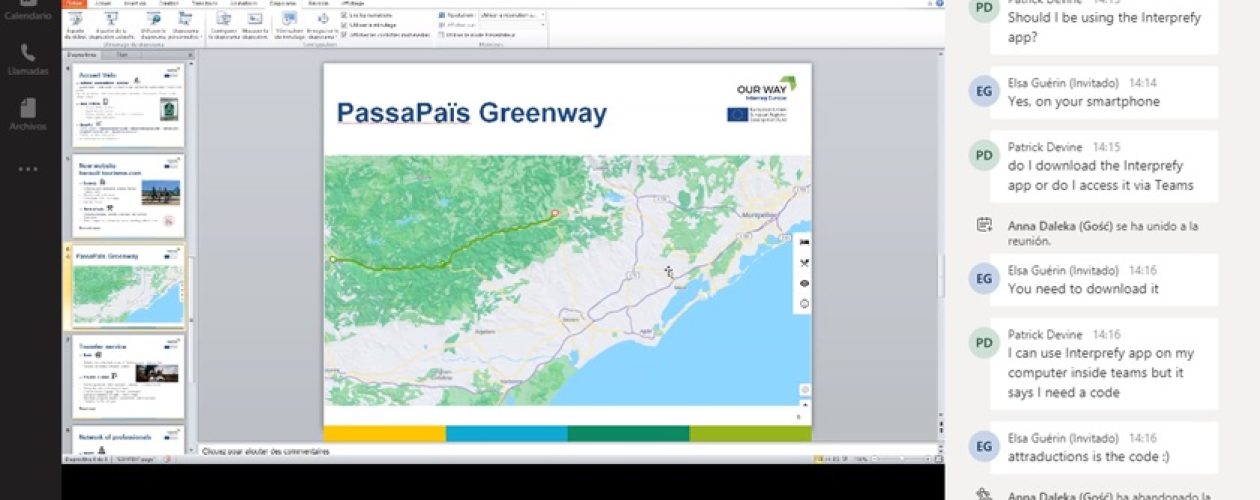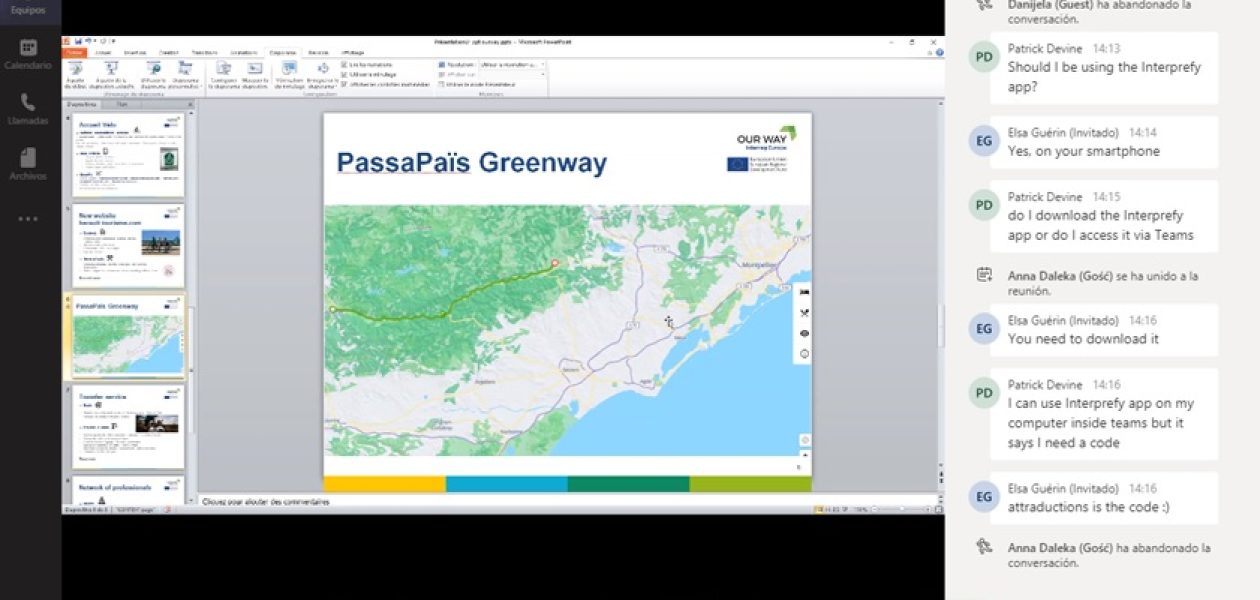3rd Interregional Thematic Workshop of the OurWay Project
Tourism Promotion and product development. 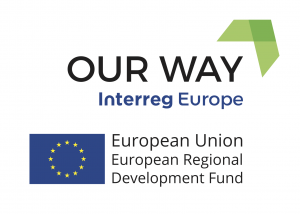
The 3rd “Tourism Promotion and product development ” seminar took place on 17th July 2020 organised by the Hérault Department and held online due to the pandemic.
Improving the promotion and marketing of the tourism product; enhancing services and meeting customer expectation, and measuring the economic impact of the itineraries are some of the key elements mentioned in the seminar.
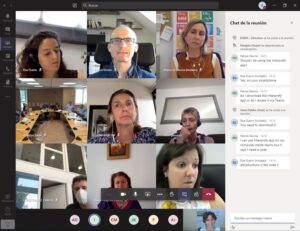 Marie Passieux, Vice-President responsible for Youth, Sports and Leisure at the Hérault Departmental council outlined the framework of tourism and cycling policy in the Hérault Department:
Marie Passieux, Vice-President responsible for Youth, Sports and Leisure at the Hérault Departmental council outlined the framework of tourism and cycling policy in the Hérault Department:
- Very important role to the bike. L’Hérault has a strategic policy regarding cycling and cycle tourism with defined objectives. The department is responsible for tourism and sports; tourist offices are the first step to proximity; it is the main tourist area in the Occitanie region.
- The Departmental Tourism Development Plan has an axis dedicated to tourism by bike and the “Bike Plan” (2019), which integrates different uses of the bicycle, gives a very important weight to tourism.
- Soft mobility is a priority of their policy. They want to promote tourism and all year-round slow itinerant tourism as a source of employment growth. They are developing new cycling infrastructure and promoting services around; they want to go even further with the development of accommodation and intermodality, including baggage transport.
- Attractiveness of greenways and green network, based on the appeal of natural and cultural resources. The department has very valuable natural resources: two major sites of France and three in the process of being labelled.
- The department is in charge of maintenance, they have a brigade for the maintenance of the bike tracks and greenways.
- It is a region at the crossroads of major cycle routes in France (EuroVelo, Via Rhône), and the green network that runs through the entire department.
- Regional and departmental collaboration and public-private partnership is also essential.
Cristina Durán Torres-Fontes, Head of Service of Relations with the European Union Region of Murcia – Lead Partner, introduced the OurWay Project presenting a reference to the Good practices proposed by the partners of OurWay regarding tourism promotion.
The Region: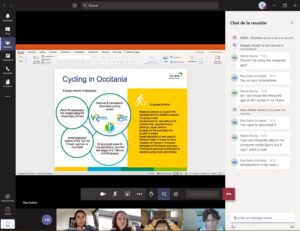
Presentation on the “Slow tourism” project – by Elsa Guérin, from the Regional Tourism Committee of the Occitanie Pyrénées Méditerranée region:
The region’s objective is to reach 5300 km of cycle routes; they have the first cluster dedicated to the cycling economy in France, and contribute to the Itinerary Committee with the Mediterranean cycle route, which is part of EuroVelo 8 in France. This itinerary is planned to achieve 800 km, 80% of which are already available on site (traffic free), received 1 million visits in 2017; 26,000 euros/km/year by return, and plan to reach 66,000 euros/km/year by 2025. They want to strengthen itinerant tourism by bike, which represents only 2%.
Regarding the impact of cycle tourism in the Mediterranean, they have used the EuroVelo 6 methodology, which is a common methodology which combines the use of automatic counters and field surveys; they will be monitored every 3 years.
The Department: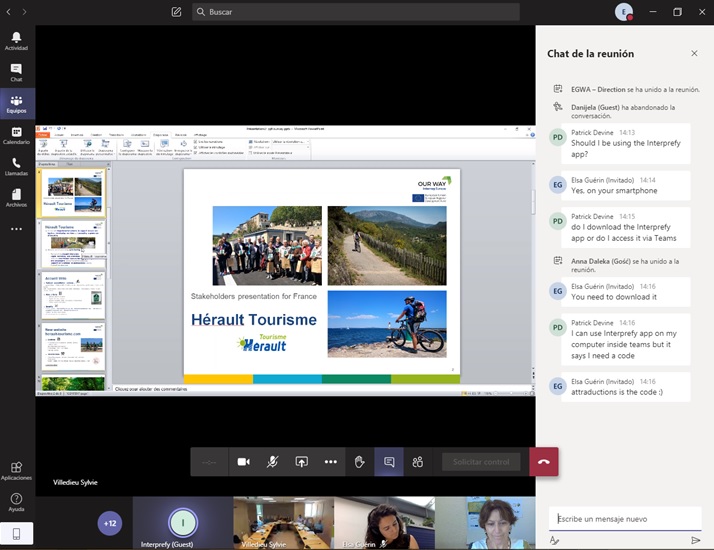
Presentations: “Accueil Vélo ” label – Elodie Fonteneau – Tourist development agency in the Hérault department, and the study conducted by sections in the Green network of the Department of L’Hérault for the orientation of the tourist product, by Cabinet Kipik Conseils.
They are working to fine-tune marketing, enriching the web and making it clearer and more effective; designing highly attractive trips for customers and improving intermodality, partnership, and the integration of the most sporty bike users.
The department has created 26 travel proposals from 1 to 3 days, in cooperation with the private sector, with the aim of positioning them with tour operators, and also to promote them among end users, so that they can organize their trips on their own.
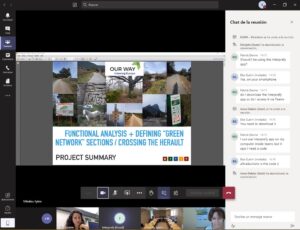
The Greenway of Passa Pais (shared by the General Councils of the Hérault and Tarn) was built over an old railway line and is about 80 km long. It is located within the Upper Languedoc Natural Park and has a network of some 60 professionals who provide services in the greenway area, grouped together in an association called Le reseau Pro Passa Pais. It will soon have a luggage transfer service to enable the development of itinerant cycling and walking trips.
They have carried out a detailed and very useful functional analysis of the green network by sections, to guide the type of clientele to be targeted, the necessary improvements in infrastructure and services, as well as to guide marketing by target groups. They are working on intermodality and how to get there without a car.
Other Greenway’s best practices
The director of the European Greenways Association (EGWA) presented other recent examples of good practices in tourism promotion and product creation from recent projects. She referred in particular to the European projects Greenways Heritage, and the tourism GIS and story map UNESCO + greenways and travel proposals; also to Greenways Outdoor, and the marketing and sports events guide.
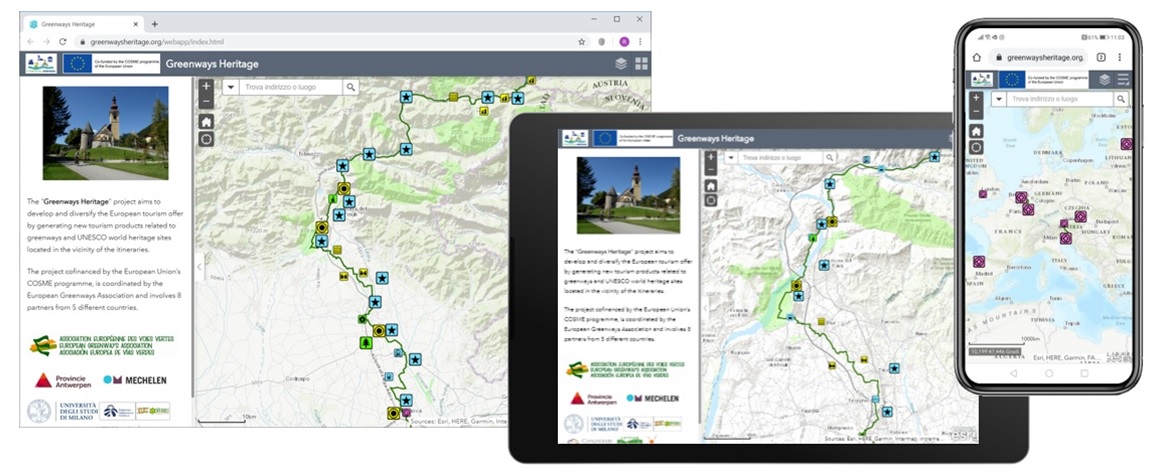
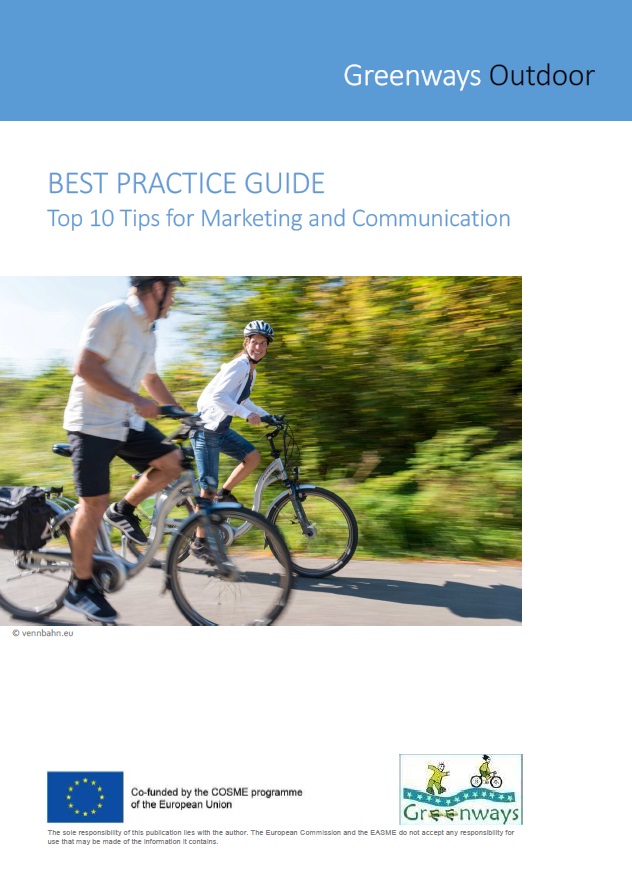
>>> Conclusions
Below are included some elements to be retained from these presentations, previously included in other Best Practices proposed by partners, and presentations already made, but that are essential, and which it is recommended to take into account in the preparation and implementation of the Action Plans.
- Orientation to the tourist product and marketing; if there is no tourist product or if there are no services nearby the greenways and other non-motorized itineraries that benefit from the arrival of visitors, there cannot be economic impact; the services in the environment have to be adapted to the clients, and for this purpose the network of “Accueil Velo” establishments is promoted; the scheme has a national scope which allows a greater diffusion.
- Customer expectations are essential: the customer comes first. To define the tourist product based on the functional analysis of the infrastructure by sections of the green network, enabling to define which is the best orientation to the client, and which actions are necessary to improve the itineraries by specific sections.
- To measure the economic impact of these itineraries and to know the characteristics of the users. Thus, it is essential to know:
- Where you are, where you want to go, and the means you have to put in place to be able to do it and carry it out.
- The return on investments in dedicated infrastructures; this is an essential information in order to be able to continue making improvements and more infrastructures.
- Promote public-public (regional/departmental and national), public-private partnership.
- To promote private partnership, with reference to two interesting examples: the first cluster set up around the professionals of the bicycle (cluster Vélo Vallée) and the association of service providers around the Passa Pais greenway.
- Promote the continuity of itineraries to generate long-distance itineraries and attract itinerant tourism, with greater economic impact.
- Promote intermodality and in particular how to get there without a car. To encourage transfer – transport of luggage/persons to the start/end of the route
- To favor the improvement of the quality of the infrastructure; and to position the itinerary as a destination, with a well-directed marketing.
It would be highly desirable to be able to visit and learn about these good practices on site as was initially planned, and cancelled due to the COVID. L’Hérault’s experience is very interesting and useful for the partners.
Also to mention a detail of organizational logistics: simultaneous translation French/English was spread through a mobile application; the pandemic is forcing us to improve in the use of new technologies! This is positive.
Note: Departement of L’Hérault counts with the Passa Pais greenway and a wide green network. The Department of L’Hérault was one of the partners in the ReverMED project; Green Network of the Mediterranean, inspired by the Lille Declaration (September 2000), (2003-2005) in the framework of INTERREG MEDOC IIIb. That counted also with the participation of the EGWA.
>> Useful links to the methodologies and examples on Economic impact assessment. (Common information for the on-line study visit organized by Ireland.)
Mercedes Muñoz
European Greenways Association, Director
Advisory Partner – 30/07/2020
Credit photos: © Images from the Online Seminar – EGWA

